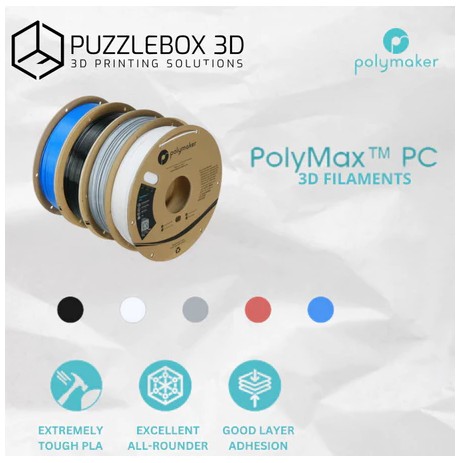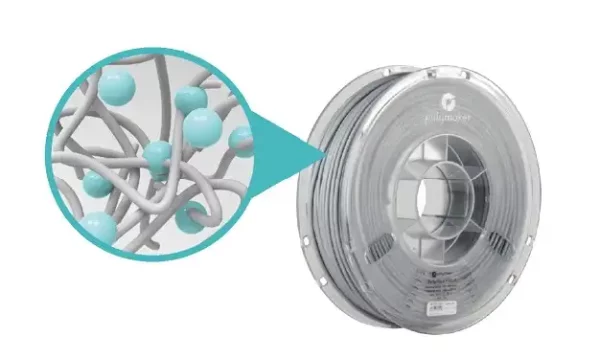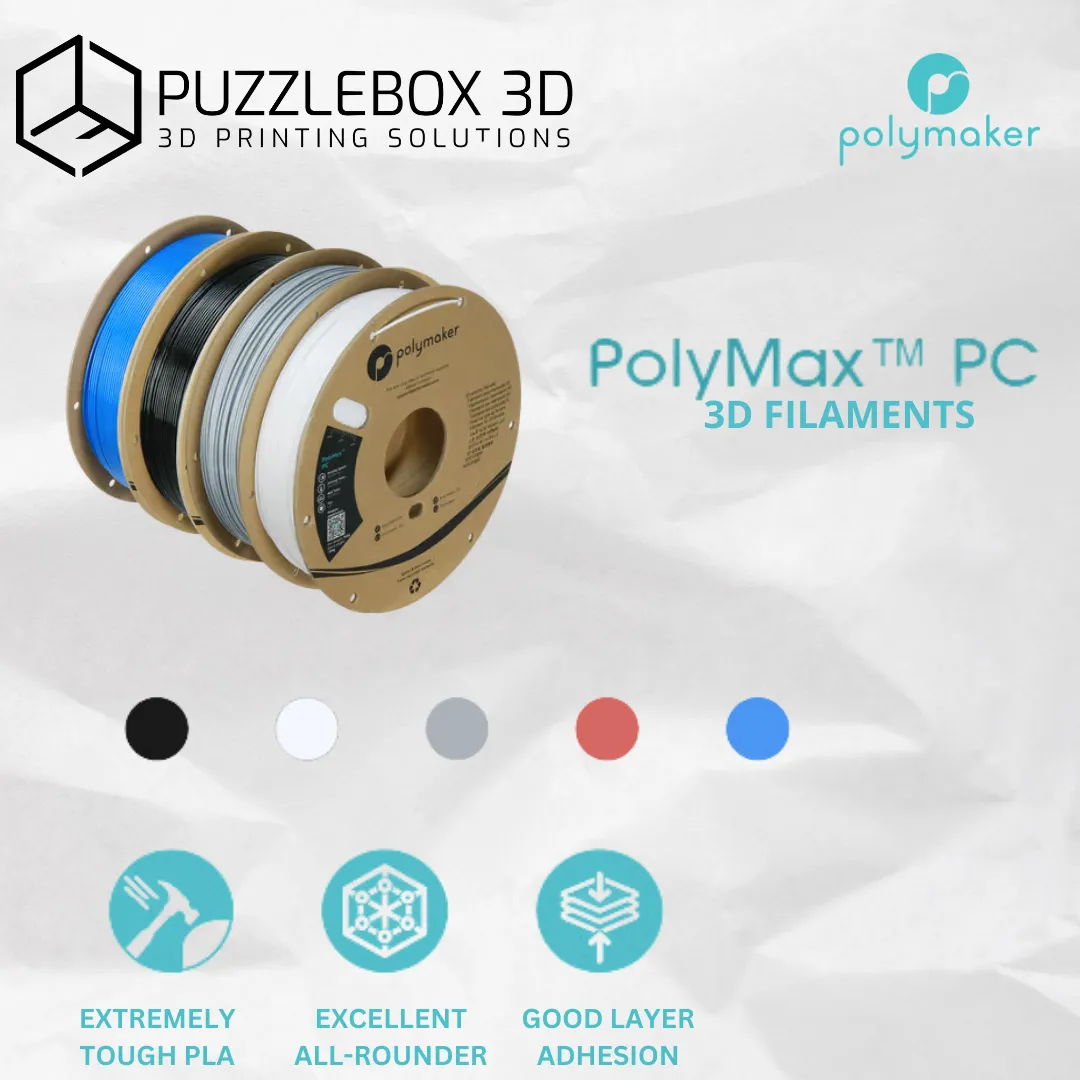
Polymaker PolyMax PC 3D Printing Filament

Polymaker PolyMax PC
PolyMax™ is a family of advanced 3D printing filaments produced with Polymaker’s Nano-reinforcement technology, to deliver exceptional mechanical properties and printing quality.
PolyMax™ PC is an engineered PC filament combining excellent strength, toughness, heat resistance and printing quality. It is the ideal choice for a wide range of engineering applications.
Nano-reinforcement technology is applied to produce filaments with excellent mechanical properties and printing quality. It dramatically improves the toughness of the material by increasing its impact resistance.
Price range: ₱2,199.00 through ₱7,999.00
Polymaker PolyMax PC 3D Printing Filament

Polymaker PolyMax PC
PolyMax™ is a family of advanced 3D printing filaments produced with Polymaker’s Nano-reinforcement technology, to deliver exceptional mechanical properties and printing quality.
PolyMax™ PC is an engineered PC filament combining excellent strength, toughness, heat resistance and printing quality. It is the ideal choice for a wide range of engineering applications.
Nano-reinforcement technology is applied to produce filaments with excellent mechanical properties and printing quality. It dramatically improves the toughness of the material by increasing its impact resistance.
Price range: ₱2,199.00 through ₱7,999.00
Polymaker PolyMax™ PC Filament
PolyMax™ is a family of advanced 3D printing filaments produced with Polymaker’s Nano-reinforcement technology, to deliver exceptional mechanical properties and printing quality.
PolyMax™ PC is an engineered PC filament combining excellent strength, toughness, heat resistance and printing quality. It is the ideal choice for a wide range of engineering applications.
PolyMax™ PC features Polymaker's Nano-reinforcement technology:
Nano-reinforcement technology is applied to produce filaments with excellent mechanical properties and printing quality. It dramatically improves the toughness of the material by increasing its impact resistance.

Printing Properties:
- Nozzle Temperature:
250˚C – 270˚C - Printing Speed:
30mm/s – 50mm/s - Bed Temperature:
90˚C – 105˚C - Bed Surface:
MAGIGOO PC
BUILDTAK - Cooling Fan:
OFF
*Printing conditions may vary with different printers and nozzle diameters
Mechanical Properties:
- Young’s Modulus:
2048 ± 66 Mpa - Tensile Strength:
59.7 ± 1.8 Mpa - Bending Strength:
94.1 ± 0.9 Mpa - Charpy Impact Strength:
25.1 ± 1.9 kJ/m2
Thermal Properties:
- Glass Transition Temperature:
113˚C - Vicat Softening Temperature:
117˚C - Melting Temperature:
N/A
Notes:
- Drying Settings:
80˚C for 8h - Recommended Support Materials:
PolySupport™
Other:
When printing with PolyMax™ PC it is recommended to use an enclosure. For large part it is recommended to use a heated chamber.
It is recommended to anneal the printed part right after the printing process to release the residual internal stress.
Annealing settings: 100˚C for 2h
TDS:
DOWNLOAD
SDS:
DOWNLOAD
PIS:
DOWNLOAD
Printing Properties
Nozzle Temperature:250˚C – 270˚C
Printing Speed:30mm/s – 50mm/s
Bed Temperature:90˚C – 105˚C
Bed Surface:MAGIGOO PCBUILDTAK
Cooling Fan:OFF
Mechanical Properties:
Young’s Modulus:
2048 ± 66 Mpa
Ten
Thermal Properties:
Glass Transition Temperature:
113˚C
Vicat Softening Temperature:117˚C
Melting Temperature:N/A
Notes
Dry Setting:
80˚C for 8h
Recommended Support Materials:PolySupport™

